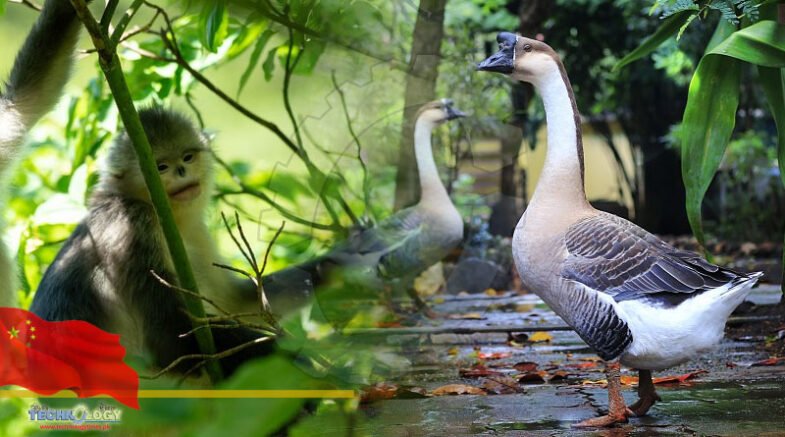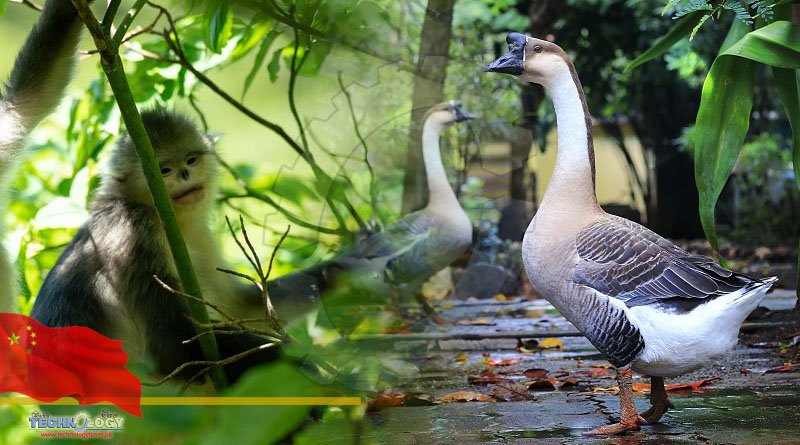President of COP15 and China’s minister of ecology and environment, highlighted the results of China’s biodiversity conservation efforts over the past 10 years.

China’s biodiversity conservation efforts are being shared at the 15th Conference of the Parties, or COP15, through the launch of the China Pavilion in Montreal.
With the theme “Ecological Civilization: Building a shared future for all life on Earth“, the launch of the pavilion attracted many visitors during the global meeting of the United Nations Convention on Biological Diversity, or CBD. The meeting in the Canadian city aims to adopt the post-2020 Global Biodiversity Framework, or GBF, to guide action to halt biodiversity loss by 2030 and achieve recovery by 2050.
In his welcoming remarks, Huang Runqiu, president of COP15 and China’s minister of ecology and environment, highlighted the results of China’s biodiversity efforts for conservation over the past 10 years.
He said China has improved institutional mechanisms and policies to promote the mainstreaming of biodiversity conservation. In the past decade, more than 20 laws and regulations related to biodiversity, such as the Forest Law and the Wildlife Protection Law, have been formulated and revised, and the list of wild animals and plants under national protection has been revised.
“Our 14th Five-Year Plan (2021-25) and the outline of long-term goals for 2035 will implement major biodiversity conservation projects and build a biodiversity conservation network as important contents,” Huang told the audience at the exhibition.
China has also established the first group of national parks since 2021. In Hainan province, the authenticity and integrity of the ecosystem have been promoted through the implementation of plantation withdrawal and transformation, vegetation restoration, and aerial corridor construction. These moves have effectively solved the problem of habitat fragmentation for gibbons.
The population has increased from two groups of around eight to five groups of 36 individuals.
“Through years of hard work, China’s biodiversity conservation has achieved remarkable results, effectively protecting 90 percent of terrestrial ecosystem types and 74 percent of national key protected wild animal and plant populations,” said Huang.
The COP15 phase one held in China in October 2021 adopted the Kunming Declaration, laying a foundation for the second phase of the conference, and China is once again at the helm during the second part of COP15 in Montreal.
Elizabeth Maruma Mrema, executive secretary of the UN CBD, gave high praise to China’s achievements on biodiversity conservation, especially throughout the pandemic. China found a way to not only hold the first part of COP last year, but also to mobilize the commitment of the world through the Kunming Declaration, she said.
Stephen de Boer, assistant deputy minister of the international affairs branch of the Environment and Climate Change Canada, said Canada and China have a long history of working together on environmental issues.
While applauding China’s contributions to conservation, Marco Lambertini, director-general of World Wildlife Fund International, said the nature that humans depend on to survive is still at stake.
One million species face extinction because of humans, he said, and more than 90 percent of fisheries have become either over or fully exploited over the past 50 years.
“I am delighted to hear that the Chinese government and many other governments are beginning to actually focus on the right condition to unite the world to be safe,” he said.
Deborah Lehr, vice-chair and executive director of the Paulson Institute, a think tank, said China has a linchpin role in safeguarding global biodiversity.
“China is a mega-diverse country and home to some of the most stunning species. Effective protection of these national treasures is in itself a substantial contribution to global biodiversity,” Lehr said.
Originally published at China Daily
